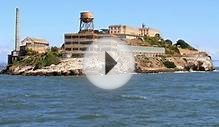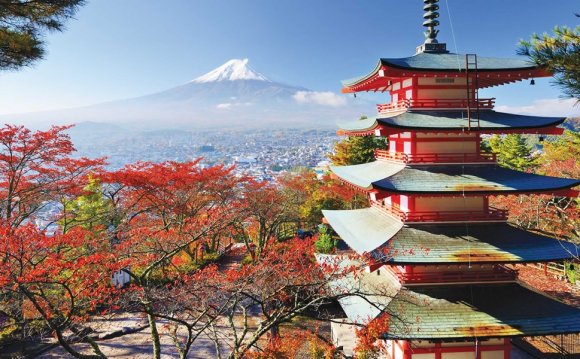
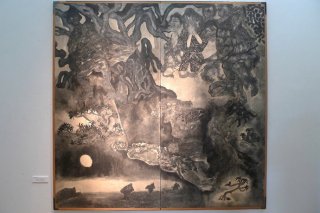 Andre Vltchek is a philosopher, novelist, filmmaker and investigative journalist. His latest books are: “Exposing Lies Of The Empire” and “Fighting Against Western Imperialism”. Discussion with N. Chomsky: On Western Terrorism. Point of No Return is his critically acclaimed political novel. Andre is making films for teleSUR and Press TV. Vltchek presently resides and works in East Asia and the Middle East.
Andre Vltchek is a philosopher, novelist, filmmaker and investigative journalist. His latest books are: “Exposing Lies Of The Empire” and “Fighting Against Western Imperialism”. Discussion with N. Chomsky: On Western Terrorism. Point of No Return is his critically acclaimed political novel. Andre is making films for teleSUR and Press TV. Vltchek presently resides and works in East Asia and the Middle East.
At the end of April, President Barack Obama swept through Asia like a storm, leaving behind him all sorts of political debris, as well as confusion, and often even deep embarrassment.
There were speeches clearly aimed at swelling anti-Chinese and anti-North Korean sentiments, and there were promises to ‘defend’ certain countries, including South Korea and Japan, although both of them appear to be more belligerent than their communist alleged adversaries.
There was immediate reaction from Pyongyang, calling South Korean President Park Geun-Hye a “prostitute, ” and there was an ice-cold reaction from Beijing, calling on the US and Japan to “abandon their cold war mentality.”
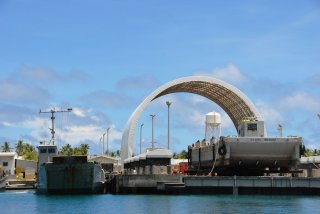 The US language was, as always, patronizing, even insulting – as in The New York Times’ report:
The US language was, as always, patronizing, even insulting – as in The New York Times’ report:
“Jeffrey A. Bader, who was the senior China adviser on the National Security Council until 2011, said: 'The message is: Don’t think that what Putin is doing in eastern Ukraine is so brilliant that you should be inspired by it. Don’t think that this is a model that could work for you.'”
This kind of unsavory preaching is naturally despised in China and in many other countries.
But Obama’s visit was disastrous on many other fronts, too. There were trade deals proposed that never fully materialized, including those between the United States and Japan. There were bilateral trade agreements signed between the US and Malaysia, but the 12-country Trans Pacific Partnership (TPP), which commits countries to lower import tariffs and therefore horrifies local producers, never really materialized.
What actually occurred was the signing of what Reutersdescribed as “a 10-year military pact with the Philippines that opens the way for US troops, planes and warships to have greater access to bases in the Philippines.”
 Officially, it was to ‘protect’ the Philippines from the rising ‘threat’ of China. Although many of the intellectuals in Manila see the United States as pitching southeast nations against its great neighbor.
Officially, it was to ‘protect’ the Philippines from the rising ‘threat’ of China. Although many of the intellectuals in Manila see the United States as pitching southeast nations against its great neighbor.
Eduardo C. Tadem, a leading Philippine academic and professor of Asian studies at the University of the Philippines, commented for this report:
"The Obama administration has not departed substantially from the policies of its predecessors as far as foreign policy is concerned. Given this, it does not possess the moral authority to lecture China on the proper behavior of a big power in the Asia-Pacific region. Granted that China has not been on its best behavior with respect to the territorial disputes it is embroiled with in the region, it is the US, on the whole, that has done much more damage against Asian peoples and societies with its imperial policies in both the economic and political spheres. Neither does it have the moral authority to lead Asian societies in charting a new economic order given its own failed economy with high unemployment and continually rising inequalities."
Malaysia became a brand new addition to the list of US ‘allies’ in the region, although, to what extent, still remains to be seen.
As I landed at the habitually super-efficient Kuala Lumpur International Airport on April 26, long lines formed queues before the immigration counters, and arriving passengers were fingerprinted – something that is very rarely done in Malaysia.
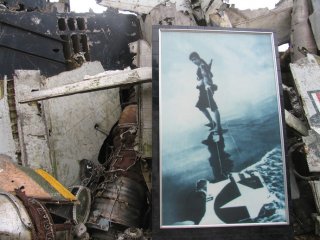 The rail network had collapsed, express trains were running on local tracks, and I was told that many of the roads in the capital had been blocked.
The rail network had collapsed, express trains were running on local tracks, and I was told that many of the roads in the capital had been blocked.
Overall, in Malaysia, the entire ‘presidential charade’ was thoroughly embarrassing, even from the point of view of the former ruler of the country, and one of the most outspoken critics of the West on the Asian continent, Dr. Mahathir Mohamad. The former prime minister particularly distrusted the proposed TPP or TPPA. Malaysian filmmaker and TV producer Azreen Madzlan shared her experience with me:
“According to former Prime Minister of Malaysia, Tun Dr Mahathir Mohamad during an interview with a local business channel Capital TV, for the show that I was producing, Malaysia should not be compelled to sign the Trans-Pacific Partnership Agreement (TPPA) just because of President Obama’s visit to Malaysia this weekend. Tun M who has openly roasted Najib’s administration for its intention to sign on with the non-transparent deal continues to warn that TPPA is a controlled trade agreement put together by an impoverished nation trying to exploit the natural resources of other countries.”
But the Malaysian media had chosen to welcome the supreme leader of the Western world with loud fanfares, even using the most poetic words.
Huge headlines shouted from the top of most of the local dailies: 'Hello Malaysia, ' the self-proclaimed 'people's paper, ' the Sunday Star, wrote as it depicted the grinning face of Barack Obama. The paper then commented: “Flashing his infectious smile, President Barack Obama stepped out of Air Force One, gave his customary right handed “hello” wave – and charmed every one of the dignitaries who met him as he arrived for his official visit to the country. It will be a busy day for him before he leaves for Manila tomorrow.”
Western media opted for a wide range of attitudes, from hardcore propaganda to the phlegmatic style adopted by The New York Times:
“On Sunday, President Obama visited Malaysia to underscore how much has changed in the past 16 years – not least in the country’s attitude toward the United States, which has evolved from deep suspicion, verging on contempt, to a cautious desire for cooperation.”
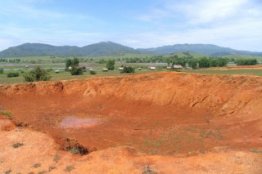
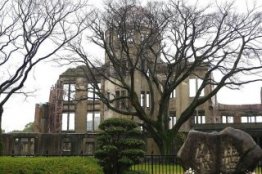
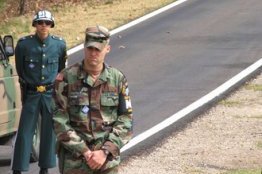
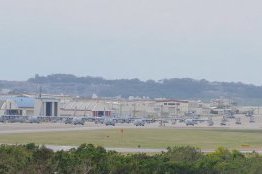
RELATED VIDEO


